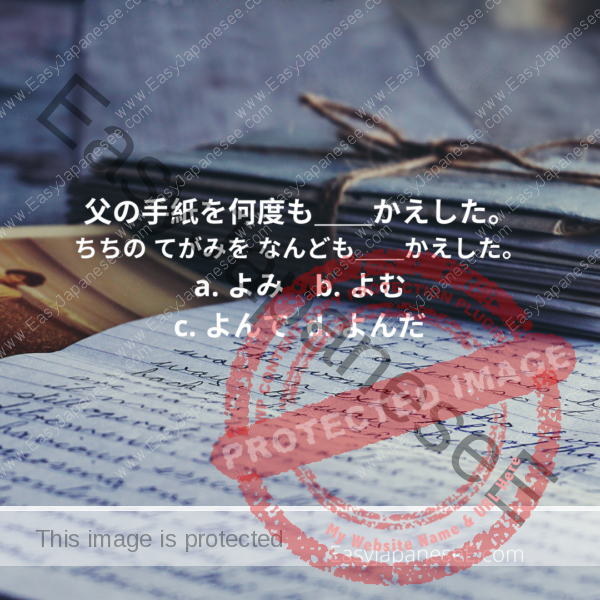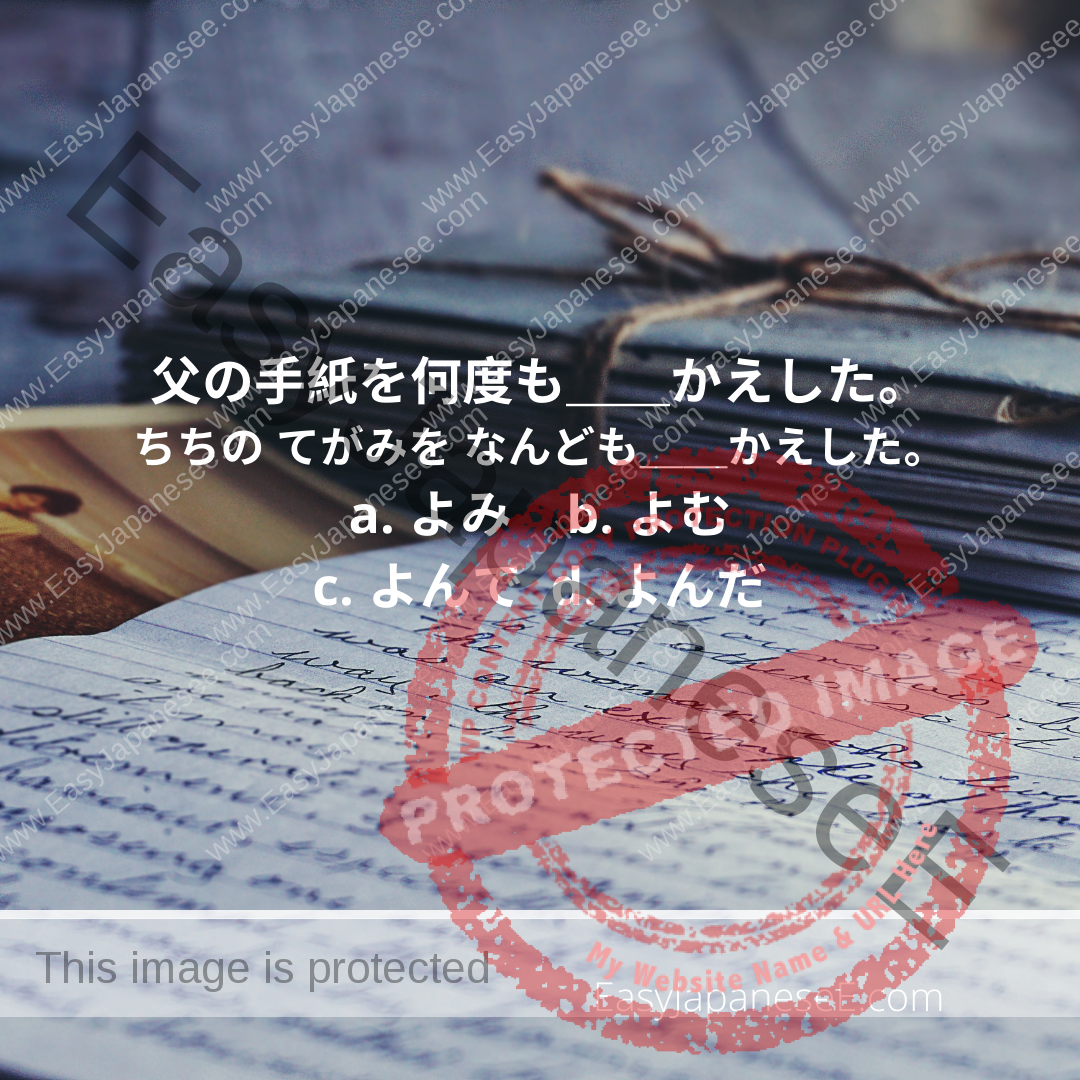
Today’s Grammar Point: ~かえす
~をかえす is a transitive verb meaning “to return,” “to put back,” or “to reverse” but かえす can be used with a verb stem and add the meaning of “in return,” “back,” “again,” or “over.”
Connection
- [verb stem] + かえす
Examples
- やり返す = to do (it) back, to retaliate
- 計算をやり返した。
I recalculated it. - やられたらやり返しなさい。
If someone hurts you, hurt him back. (Give tit for tat.)
- 計算をやり返した。
- 言い返す = to talk back, to say back
- 目上の人に言い返すものではない。
Do not talk back to your elders. - ジョンさんは同じことを何度も言い返していた。
John was repeating the same thing over and over.
- 目上の人に言い返すものではない。
- 打ち返す = to hit back
- ジョンさんのサーブを打ち返せるものはいなかった。
Nobody was able to return John’s serve.
- ジョンさんのサーブを打ち返せるものはいなかった。
- 微笑み返す = to smile back (at the person)
- エイミーさんに微笑んだら、微笑み返してくれた。
I smiled at Amy and she smiled back.
- エイミーさんに微笑んだら、微笑み返してくれた。
- 殴り返す = to punch back, to give a blow in return
- 殴られたら殴り返せ.
Hit back if you are hit. (If somebody hits you, you hit back.)
- 殴られたら殴り返せ.
- 読み返す = to read (it) again
- この本は何度も読み返す価値があります。
This book is worth reading over and over again.
- この本は何度も読み返す価値があります。
Answer to Today’s question: a. よみ
かえす is used after a verb stem. “I read my father’s letter over and over again.”

